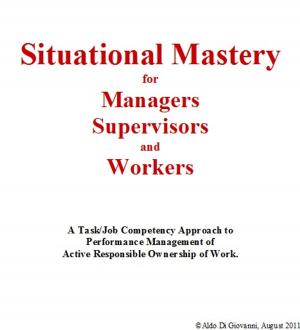Positive Self-Talk Gold Book
Nonfiction, Health & Well Being, Self Help, Self Improvement, Affirmations, Success, Motivational| Author: | David J. Abbott M.D. | ISBN: | 9781940109107 |
| Publisher: | Positive Thinking Network LLC | Publication: | November 30, 2014 |
| Imprint: | Language: | English |
| Author: | David J. Abbott M.D. |
| ISBN: | 9781940109107 |
| Publisher: | Positive Thinking Network LLC |
| Publication: | November 30, 2014 |
| Imprint: | |
| Language: | English |
Mark Twain wrote, “Life does not consist mainly, or even largely, of facts or happenings. It consists mainly of the storm of thoughts that is forever blowing though one’s head.”
Mark Twain was right. Life consists mainly of the storm of thoughts that blow through your mind. The events of life can be trivial, tragic, and even monumental in nature, but the events themselves have little power. It’s the storm of thoughts about those events that controls our lives.
Surviving the storm of thoughts is how we spend most of our time. No matter what we do, the storm still blows, and to a significant degree shapes our lives. Surviving the storm is something we do every day all day long.
An entourage of thoughts accompanies each event in our lives. Those thoughts can be positive, negative, or most likely, something in between. Those thoughts are the battleground where we come to our agreement with life. Those thoughts define who we are and what we can do.
Surviving the storms of the mind is similar to surviving storms at sea. The right strategy gives the best results.
In our eleven year sailing voyage around the world on our thirty-nine foot catamaran, we survived more than a few storms at sea, but we survived even more storms in our mind.
Storms at sea are easier to survive than storms of the mind. A storm at sea lasts for a few days before it moves on. Storms of the mind sometimes last a lifetime.
Managing a storm at sea is never fun, but you have multiple tools and strategies that push the odds of survival in your favor. Managing the storms of the mind is more challenging because the storm goes on without end. It waxes and wanes year after year. The storm is a relentless fact of life, and if you don’t control the storm, it can blow you away.
In a storm at sea, you can’t control the storm. You simply go into damage control mode so that it does not create a demolition derby that destroys your yacht and injures your crew. Well-established storms are beyond your control and are best avoided. You simply don’t go places where storms are likely to occur. And when you are caught in a storm, you ride it out knowing that within forty-eight hours the storm will be history.
Mental storms are different because you have a great deal of control over the storm of thoughts blowing through your mind.
Mark Twain wrote, “Life does not consist mainly, or even largely, of facts or happenings. It consists mainly of the storm of thoughts that is forever blowing though one’s head.”
Mark Twain was right. Life consists mainly of the storm of thoughts that blow through your mind. The events of life can be trivial, tragic, and even monumental in nature, but the events themselves have little power. It’s the storm of thoughts about those events that controls our lives.
Surviving the storm of thoughts is how we spend most of our time. No matter what we do, the storm still blows, and to a significant degree shapes our lives. Surviving the storm is something we do every day all day long.
An entourage of thoughts accompanies each event in our lives. Those thoughts can be positive, negative, or most likely, something in between. Those thoughts are the battleground where we come to our agreement with life. Those thoughts define who we are and what we can do.
Surviving the storms of the mind is similar to surviving storms at sea. The right strategy gives the best results.
In our eleven year sailing voyage around the world on our thirty-nine foot catamaran, we survived more than a few storms at sea, but we survived even more storms in our mind.
Storms at sea are easier to survive than storms of the mind. A storm at sea lasts for a few days before it moves on. Storms of the mind sometimes last a lifetime.
Managing a storm at sea is never fun, but you have multiple tools and strategies that push the odds of survival in your favor. Managing the storms of the mind is more challenging because the storm goes on without end. It waxes and wanes year after year. The storm is a relentless fact of life, and if you don’t control the storm, it can blow you away.
In a storm at sea, you can’t control the storm. You simply go into damage control mode so that it does not create a demolition derby that destroys your yacht and injures your crew. Well-established storms are beyond your control and are best avoided. You simply don’t go places where storms are likely to occur. And when you are caught in a storm, you ride it out knowing that within forty-eight hours the storm will be history.
Mental storms are different because you have a great deal of control over the storm of thoughts blowing through your mind.















